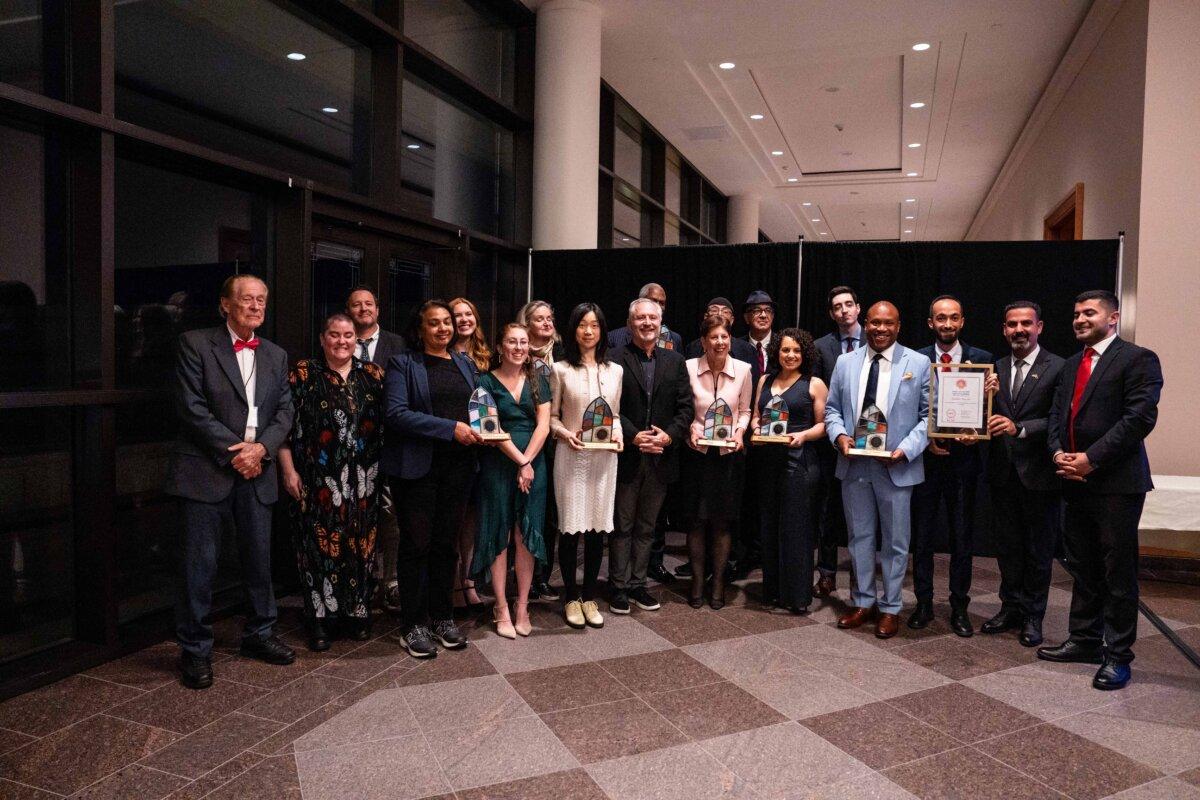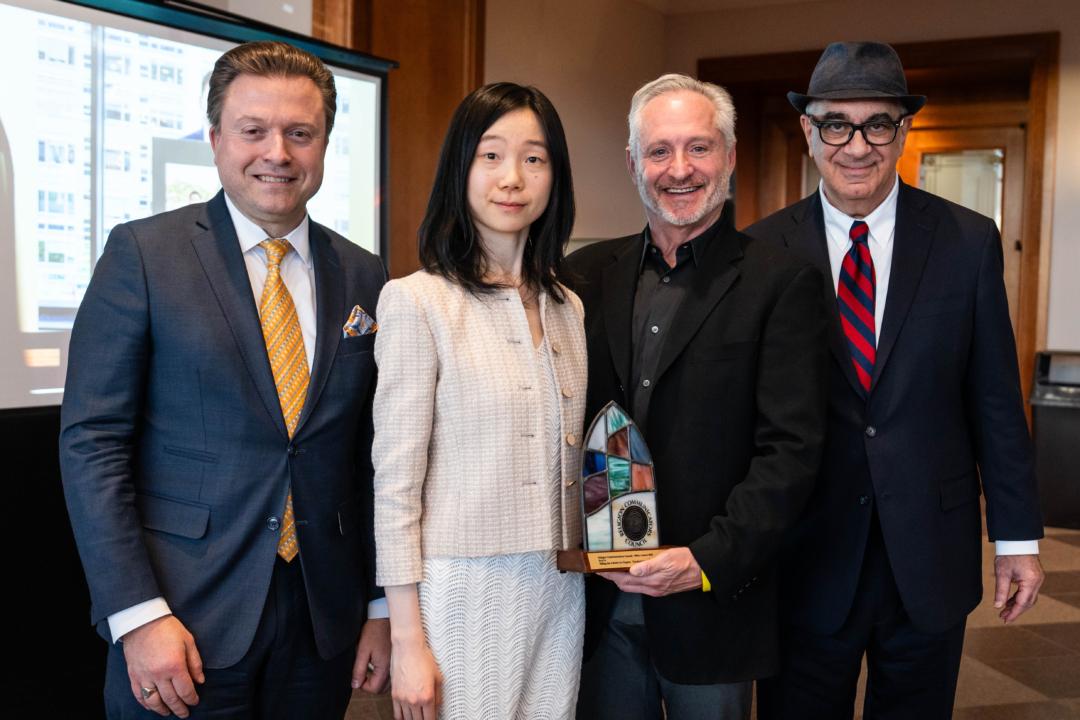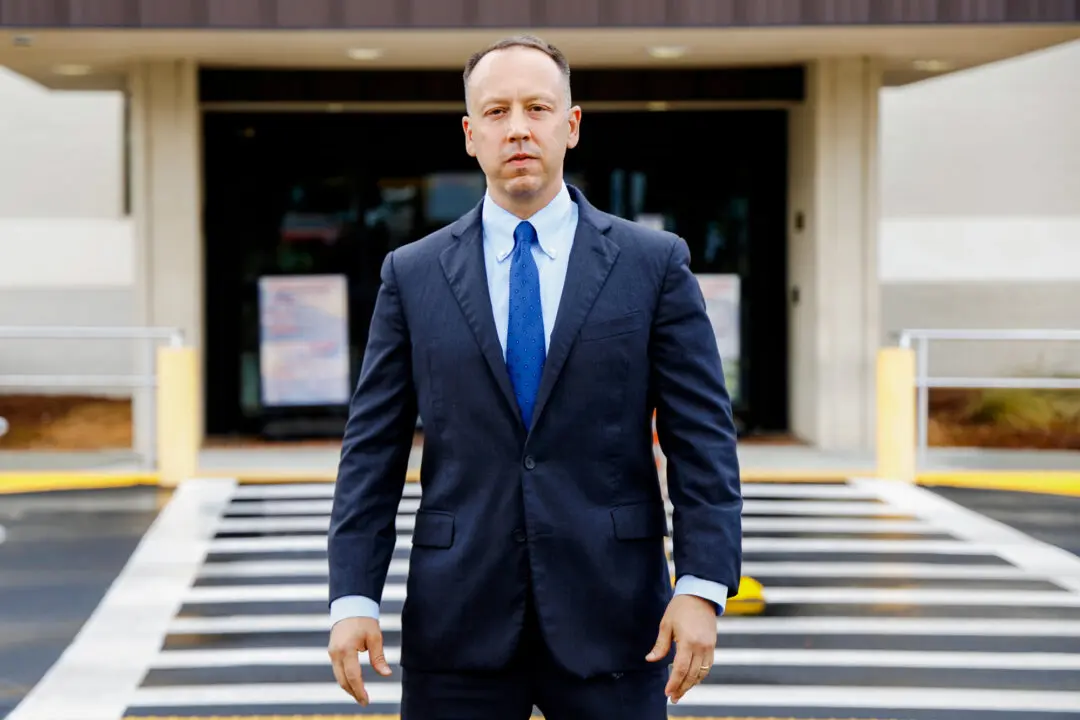Two Epoch Times journalists accepted awards on April 25 for work exposing human rights abuses by the Chinese Communist Party (CCP) and detailing efforts to support Jews in war-ravaged Israel.
The honors were presented during the annual convention of the Religion Communicators Council (RCC) in Salt Lake City.
Reporter Eva Fu, who splits her time between New York City and Washington, received the 2025 Wilbur Award. It’s the top honor bestowed by the professional association and is presented annually to recognize the most outstanding work in the communication of religious issues, values, and themes in secular media.
Epoch Times reporter Dan Berger, who’s based in the Atlanta area, received an Award of Excellence at the event. The honor highlights entries deemed to be of excellent quality and unquestionably worthy of recognition, according to the RCC.
The professional association’s awards spotlighted exceptional work published in 2024 by 20 media outlets in the fields of print and online journalism, book publishing, podcasts, radio, television, and film.
Winners of the awards were selected by juries of media professionals based on content, creativity, impact, and excellence in communicating religious values. The ultimate criterion is “brilliance in communication about faith and religion with fairness and professionalism, honesty and respect,” the organization said in a statement.
“I am impressed with the entries this year, which are heartening in how they approach topics of faith ... with a desire to foster understanding and connectedness,” Brad Pomerance, the organization’s awards coordinator, said.
‘A Hushed Secret’
In accepting her award, Fu thanked the RCC for lifting the voices of people who had shared their own harrowing experiences with her.“In 2006, our organization, The Epoch Times, was first to report on this topic after whistleblowers from China came forward to us revealing systematic killing of prisoners of conscience, particularly Falun Gong practitioners, for their organs,” Fu said during her remarks at the banquet.
Falun Gong is a spiritual discipline that was first introduced to the public in China in 1992 but has been persecuted by the CCP since 1999 after rocketing in popularity to an estimated 70 million practitioners—more than the membership of the CCP. Its teachings encourage practitioners to live by the principles of truthfulness, compassion, and tolerance.
“Today, [the CCP’s killing for organs is] still a hushed secret,” Fu said. “Just ask the Chinese AI app DeepSeek, you will see how little tolerance the CCP has over the issue—it instantly shuts it down.”

“Intimidation doesn’t work on everyone. There are three federal bills being considered in this Congress to counter forced organ harvesting,” Fu said. “And four states have passed laws to stop health insurance coverage on organ transplants from China.”
“Having reported on the CCP’s horrific practice of state-sanctioned organ harvesting since the accumulated evidence convinced me it was real in 2006, I am moved to see the next generation—yes, I’m talking about Eva here—taking on this issue,” Jekielek said.
“Experience has shown me that when it comes to crimes against humanity of this sort, truth-telling is particularly difficult, as people resist accepting it due to its sheer horror—and also due to the sense that they may have a responsibility to act in response. This Wilbur Award is a testament to the fact that, with time, persistence, and a new cohort of committed journalists connecting with the public, we will see this ghastly practice ended.”
Before the awards banquet, Fu reflected on why receiving the honor meant so much to her.
“A lot of people have placed so much trust in me by opening up about what they went through, including sharing some really dark memories that were incredibly painful to recall,” said Fu, who was born in China. “I’m grateful for this award to elevate their voices even further.”
Fu said that even as a child, she realized how the CCP “forces young children to betray their own conscience.”
“My friend in primary school, who practiced Falun Gong, for years didn’t dare to reveal her faith at school for fear of punishment,” she said. “She couldn’t openly express her values.”
Fu became a reporter for The Epoch Times in 2019. One of her first assignments was to cover a rally in New York, where she met survivors from Chinese prisons and labor camps who told her “about cruelty that’s hard to imagine today,” she said.
“One woman, who was imprisoned because she refused to give up her belief in Falun Gong, told me how she was forced to clean the bathrooms even while she was suffering from beating and other torture in Chinese detention facilities,” Fu said.
“Their grit and determination to survive even in these harsh conditions inspired me. And thanks to my publication, I’ve had the opportunity to make their stories heard.”

This year’s Wilbur Award honorees included Abraham’s Bridge; The Associated Press; The Baltimore Banner; Being Jewish with Jonah Platt; Bo Media, CBC Radio; CBS 60 Minutes; CBS Sunday Morning; The Epoch Times; Greater Grove Hall Main Street/Boston Herald; Harper’s Magazine; Hasidic Archives; Hey Jude Productions; National Public Radio; NPR News; the Pittsburgh Post-Gazette; The Politzer Foundation; Religion News Service; and the San Francisco Chronicle.
Holocaust Survivors’ Son
Berger, the other Epoch Times reporter honored for his coverage of religious issues, said he was thankful for the opportunity to write about Israel and the discrimination faced by Jews.He also said he was grateful for the organization’s recognition of his work.
Now 70, the native of Buffalo, New York, decided to become a journalist decades ago while sitting in a hut in a Muslim village in West Africa during a stint in the Peace Corps.
Those many years earlier, he said, he'd realized it was time to look ahead to getting a “real job,” and he knew that he wanted to aim his Yale English degree at something other than studying more English literature.
He’d been keeping in touch with the outside world by reading free copies of Newsweek and Time sent courtesy of the U.S. taxpayer, he said, in addition to copies of the International Herald Tribune available in a nearby town.
It was then that he decided that he could be a journalist.
So he pursued a journalism degree and went to work covering local news for newspapers in upstate New York and Florida, before eventually stepping away to become a stay-at-home dad.
In 2022, with his children grown, he was recruited by a former Florida newsroom colleague who was working as an editor for The Epoch Times. And after the attack on Israel on Oct. 7, 2023, he took on the task of covering the conflict and the anti-Semitism it spawned across the United States and around the world.
The son of Holocaust survivors, Berger traveled to Israel to report on the conflict in March 2024.
Now, he said, he sees much of the news coverage of Israel to be slanted against it. He finds purpose in showing “the other side of that story,” he said.
“I have come in recent years to appreciate the positive power of religion, not only among my co-religionists, but among the many people of faith I work with every day,” Berger said.
“I see how their own faiths help keep their everyday lives on track—Protestants, Catholics, practitioners of ... Falun Gong, and more. I see how religion fosters values of compassion, decency, and selflessness.
“The world can always use more of that.”







